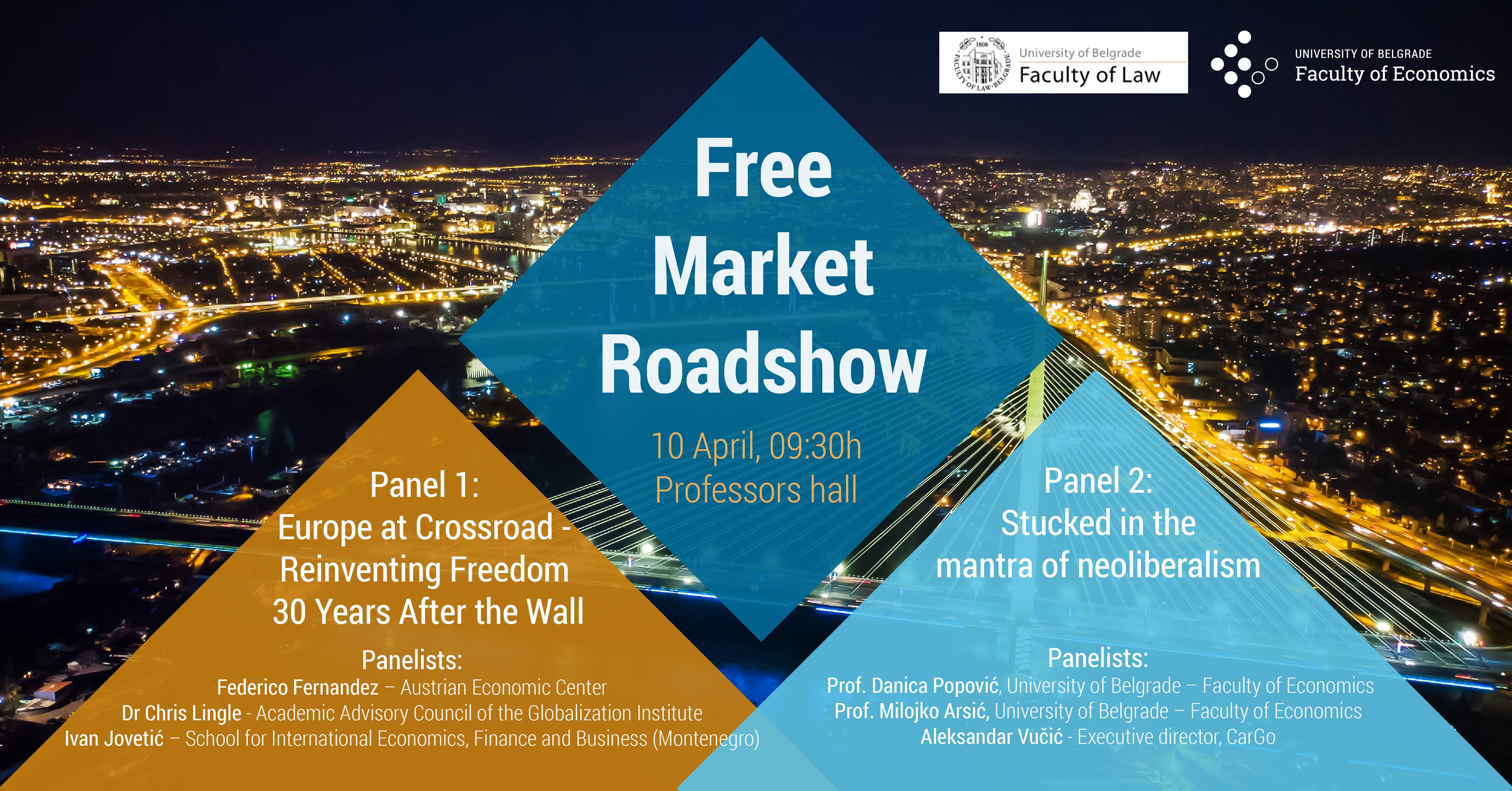The international conference Free Market Roadshow, organized by the Austrian economic center, has been held at the Belgrade Faculty of Economics. Main topics were the economic and social changes 30 years after the fall of the Berlin Wall, and also the challenges that neoliberalism brings.

“All countries that went through the transition process fast and successfully, have had neoliberal leaders. It is the only way for a country to go through reforms – if you want to do it, get active right away. A great example was Slovakia. And 20 years later we have an example in our neighborhood – Romania, upon which until recently we looked with pity. Today, our GDP is only one sixth of their gross domestic produce. How did this happen? The answer is rule of law and corruption”, said Danica Popović, professor at the Faculty of Economics, while talking on the panel titled “In the depths of neoliberalism”.
On the panel where professor Milojko Arsić and the president of the association Cargo, Aleksandar Vučić have participated, there was talk about state protectionism, monopoly, and also about reforms which are a natural part of every neoliberal society.
“The most successful example of reforms in Serbia is the privatization of the four big banks. The enemies of neoliberalism and free market have presented this as neocolonialism. In fact, what is often forgotten, is that these four banks have been highly insolvent and with negative capital. If we take savings for an example, we can vividly see the difference – citizens savings were 800 million before the bankruptcy, while today they are nearly 10 billion euros” says professor Arsić and ads that the increase of interest rates and the considerable improvement of banking services for the civil and economic sector were a good boost for the entire economy at the moment.
Aleksandar Vučić has emphasized on the example of Cargo that conducting business on the market and real needs of clients can’t be stopped.
Free Market Roadshow is held for the 11th year in a row, and this time it will tour 33 countries during March, April and May with the goal of businessmen, leading scientist, students, officials, diplomats, economic experts and other interested parties joining the debate about key European values – and start this topic which has been neglected during last few years.